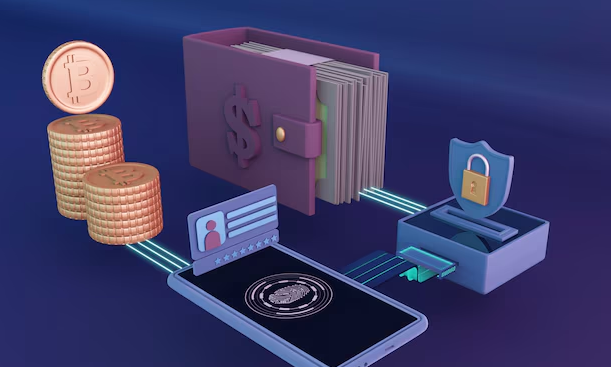In the world of cryptocurrency, securing your digital assets is paramount. As crypto adoption increases, the need for safe storage solutions becomes even more critical. Among the various storage methods available, hardware wallet stand out as one of the most secure ways to store cryptocurrencies like Bitcoin. This guide will walk you through the essentials of Bitcoin hardware wallet, comparing some of the best options on the market today, to help you choose the right one for your needs.
Understanding Bitcoin Wallets: The Basics
Before diving into hardware wallets, it’s essential to understand the concept of Bitcoin wallets in general. A Bitcoin wallet is essentially a tool that allows users to send, receive, and store their Bitcoin securely. There are several types of wallets, such as:
- Hot Wallets: Connected to the internet, making them convenient but vulnerable to hacking.
- Cold Wallets: Not connected to the internet, providing greater security by keeping your private keys offline.
Hot wallets are commonly used for regular transactions, while cold wallets, especially hardware wallets, are preferred for long-term storage because they offer a superior level of security.
What Are Hardware Wallets?
A hardware wallet’s is a physical device that stores the private keys required to access your cryptocurrencies. Unlike software wallets, which exist on your computer or mobile device, hardware wallets keep your private keys offline, reducing the risk of hacking, phishing, and malware attacks. This makes hardware wallets today one of the most secure options for storing digital currencies like Bitcoin, Ethereum, and a wide range of altcoins.
Hardware wallets offer a combination of security and convenience. While the private keys never leave the device, users can easily sign transactions when they need to move or sell their cryptocurrencies. Most hardware wallets on the market support multiple cryptocurrencies, providing a versatile solution for investors with diverse portfolios.

Ellipal Hardware Wallets: A Detailed Review
Ellipal is a hardware wallet company that has gained popularity for its air-gapped technology, meaning its devices are entirely disconnected from any network. This ensures an additional layer of security by preventing remote attacks. Ellipal wallets have an easy-to-use interface and support a wide variety of cryptocurrencies.
Key Features of Ellipal Hardware Wallets
- Air-gapped security: Ellipal devices are never connected via USB, Bluetooth, or Wi-Fi, significantly minimizing the chances of hacking.
- Touchscreen interface: Ellipal hardware wallets have a user-friendly touchscreen interface that simplifies navigation and transaction signing.
- Wide cryptocurrency support: Ellipal supports many different cryptocurrencies, making it a versatile option for multi-coin users.
While Ellipal offers cutting-edge security features, it may not be the best choice for users who prefer more established brands in the crypto space.
Ledger Hardware Wallets
Ledger is one of the most well-known names in the hardware wallet industry. Founded in 2014, the company has established itself as a reliable provider of secure storage for cryptocurrencies. Ledger wallets are favored for their robust security, ease of use, and wide range of supported cryptocurrencies. Two of their flagship models, the Ledger Nano X and Ledger Nano S Plus, are popular among crypto enthusiasts.
Ledger Nano X
The Ledger Nano X is often considered one of the best hardware wallets available today. It supports over 1,800 cryptocurrencies and provides Bluetooth connectivity, allowing users to manage their assets on the go via their smartphone.
Key features include:
- Bluetooth connectivity: Users can connect the device wirelessly to their smartphones.
- Large storage capacity: It can store up to 100 different apps, allowing for a diversified portfolio of assets.
- Secure Element (SE) chip: The Nano X features a high-grade security chip that protects against tampering and theft.
The Ledger Nano X is ideal for those who actively manage their crypto portfolio and prefer the convenience of mobile access. However, some may find the Bluetooth feature unnecessary if they don’t need to access their assets on the go.
Ledger Nano S Plus
For users seeking a more budget-friendly option, the Ledger Nano S Plus provides excellent security and versatility. This model lacks Bluetooth connectivity, but its lower price and solid feature set make it a great option for beginners or those looking to store a smaller portfolio of assets.
Key features of the Ledger Nano S Plus include:
- Affordable pricing: More budget-friendly compared to the Nano X, but with similar security features.
- Wide support for cryptocurrencies: Supports the same number of coins as the Nano X.
- USB connectivity: Requires a physical connection to a computer or smartphone, which can be seen as both a pro (more secure) and a con (less convenient).
The Ledger Nano S Plus is a dependable, cost-effective choice for those who don’t require Bluetooth functionality but still want the security and ease of use Ledger provides.
TREZOR Hardware Wallets: A Comprehensive Overview
Another major player in the hardware wallet market is TREZOR, which was the first company to release a hardware wallet in 2013. TREZOR wallets are well-regarded for their strong security protocols and user-friendly interfaces. Let’s take a closer look at the different TREZOR models available today. This particular hardware wallet supports advanced security features like multi-factor authentication and encryption.
Trezor Safe 3
The Trezor Safe 3 is one of the latest hardware wallets released by the company. It focuses on providing high-end security without sacrificing usability. The Trezor Safe 3 supports a large number of cryptocurrencies, and its intuitive interface makes it an excellent option for beginners and experienced users alike.
- Innovative security features: The Safe 3 includes Shamir Backup, which allows users to create multiple shares of their recovery seed, providing an additional layer of protection against loss.
- User-friendly design: Its simple interface makes it accessible for users who may not be tech-savvy.
- Open-source software: As with all TREZOR devices, the Safe 3 runs on open-source software, which allows for transparency and community auditing.
Trezor Model T
The Trezor Model T is the premium offering from TREZOR, featuring a touchscreen and more advanced functionalities. It’s built for users who want the best possible security combined with ease of use.
Key features include:
- Touchscreen display: Provides an intuitive and easy way to interact with the device.
- Shamir Backup: Allows for secure recovery of your wallet even if your device is lost or stolen.
- Advanced security protocols: Includes support for passphrases and other security measures to protect your assets.
The Trezor Model T is ideal for users who are willing to invest in a top-tier device that offers the latest in security and technology.
Trezor Model One
The Trezor Model One is TREZOR’s original device and remains a popular choice for those looking for a secure and cost-effective option. While it lacks the touchscreen and some of the advanced features of the Model T, it still offers excellent security.
- Affordable pricing: One of the most budget-friendly hardware wallets available, without compromising security.
- Wide cryptocurrency support: Supports most major cryptocurrencies, including Bitcoin, Ethereum, and many others.
- Simple design: The lack of touchscreen or Bluetooth features may appeal to users looking for a more basic and secure wallet.
The Trezor Model One remains one of the most trusted hardware wallets on the market, especially for users new to cryptocurrency.

KeepKey Hardware Wallets: A Review
KeepKey is another hardware wallet company known for its sleek design and solid security features. Acquired by ShapeShift in 2017, the KeepKey hardware wallet provides a simple, yet effective, solution for cryptocurrency storage.
Key features include:
- Elegant design: KeepKey has a large display that makes it easy to verify addresses and transactions.
- ShapeShift integration: Allows for seamless trading of assets directly on the wallet interface.
- Simple and secure: KeepKey provides a user-friendly experience while maintaining high-security standards.
While KeepKey hardware wallets may not offer the extensive range of features provided by Ledger or TREZOR, it’s a reliable option for users who prioritize simplicity and ease of use.
Other Noteworthy Hardware Wallets
Beyond the major players like Ledger, TREZOR, and KeepKey, there are several additional hardware wallets worth mentioning, such as:
- BitBox02: Known for its minimalist design and open-source software, BitBox02 is a great choice for users seeking privacy and security.
- Coldcard: A Bitcoin-only hardware wallet that focuses on providing air-gapped security for serious Bitcoin investors.
- SecuX: Offers a range of devices with a focus on providing secure storage for a variety of cryptocurrencies.
These hardware wallets offer specialized features that may appeal to specific types of users, depending on their needs and the assets they hold.
Final Thoughts on Choosing the Right Hardware Wallet
Selecting the ideal hardware wallet for your specific requirements necessitates careful deliberation across multiple factors. Here are some crucial elements to keep in mind:
- Security. Prioritize devices that deliver the highest level of protection for your digital assets. Look for features such as air-gapped security, Secure Element chips, and multi-factor authentication, all of which contribute to enhanced security and peace of mind.
- Usability. Opt for a wallet that matches your technical skill level. For newcomers to the cryptocurrency space, a wallet with a touchscreen or a simplified, user-friendly design might be the most suitable choice. User experience plays a crucial role in the ease of managing your cryptocurrencies.
- Supported Cryptocurrencies. Verify that the hardware wallet you’re considering is compatible with the cryptocurrencies in your portfolio. Although most leading hardware wallets support a broad array of digital coins, not all of them may support every single asset. Confirm this compatibility to avoid any future inconvenience.
- Price. Consider your budget when making a decision. Depending on your financial constraints, you might need to strike a balance between feature set and cost. High-end wallets such as the Ledger Nano X and Trezor Model T offer an extensive range of features but come with a higher price tag. On the other hand, more budget-friendly options like the Trezor Model One or Ledger Nano S Plus still provide excellent functionality without breaking the bank.
By meticulously evaluating these factors, you can make an informed decision and select the hardware wallet that best suits your needs. Taking the time to understand what each wallet offers ensures that you safeguard your digital assets with confidence and convenience. It’s important to understand what hardware wallets are compatible with the specific cryptocurrencies you plan to store.
Choosing the right hardware wallet is a crucial step in safeguarding your cryptocurrency investments. With so many options on the market, doing your research will help ensure your assets are protected for the long term.
Frequently Asked Questions about Hardware Wallets
What is a hardware wallet?
A hardware wallet is a physical device designed to securely store the private keys of your cryptocurrency, keeping them offline and safe from hackers.
Why should I use a hardware wallet?
Hardware wallets are one of the most secure ways to store cryptocurrencies, as they protect your private keys from being exposed to the internet or malware.
Are all hardware wallets the same?
No, different hardware wallets offer various features, security protocols, and levels of ease of use. The best wallet for you depends on your specific needs.
Can I store multiple cryptocurrencies on one hardware wallet?
Yes, most hardware wallets today support multiple cryptocurrencies, allowing you to manage your entire portfolio in one device.
How do I get a hardware wallet?
You can purchase hardware wallets directly from the manufacturers’ websites or through authorized resellers. Make sure to buy from trusted sources to avoid counterfeit products.
What happens if I lose my hardware wallet?
If you lose your hardware wallet, you can still recover your assets using the recovery seed phrase you set up when you first initialized the device. Just ensure that your seed phrase is






